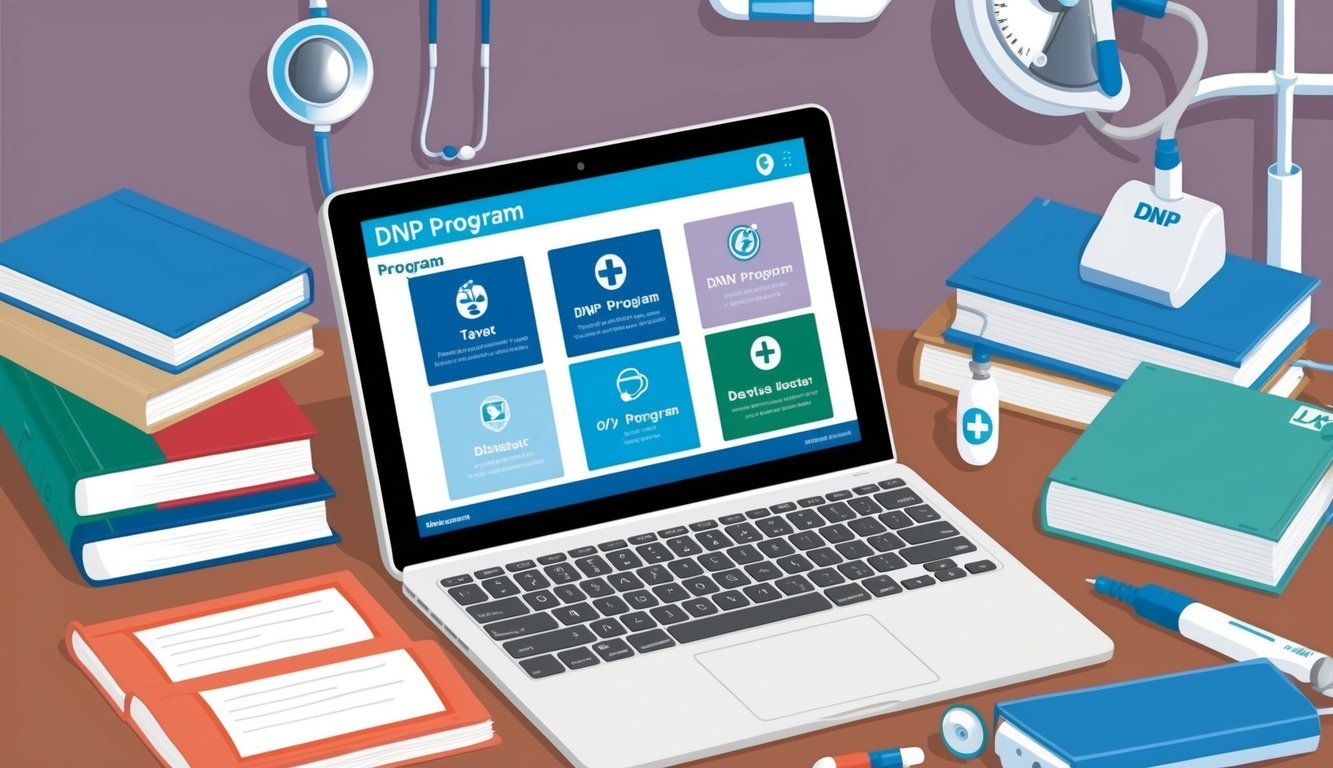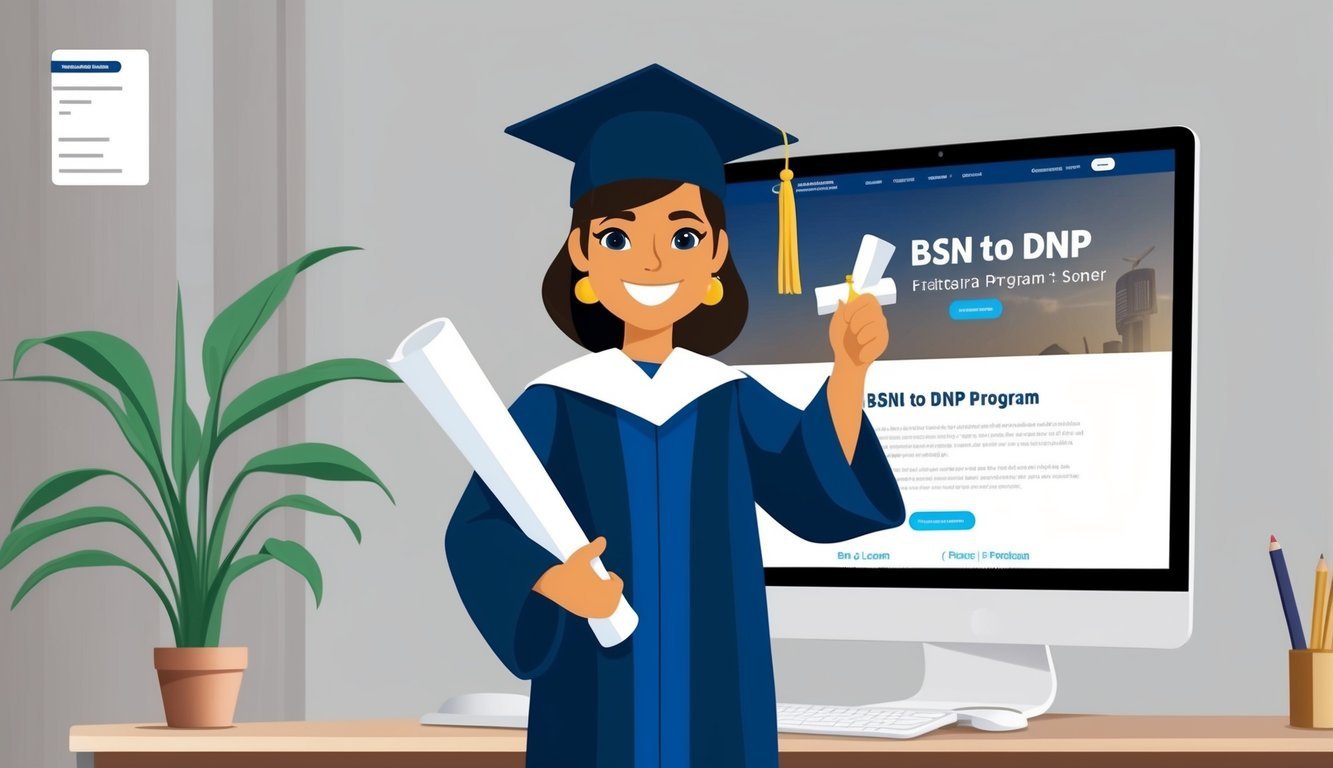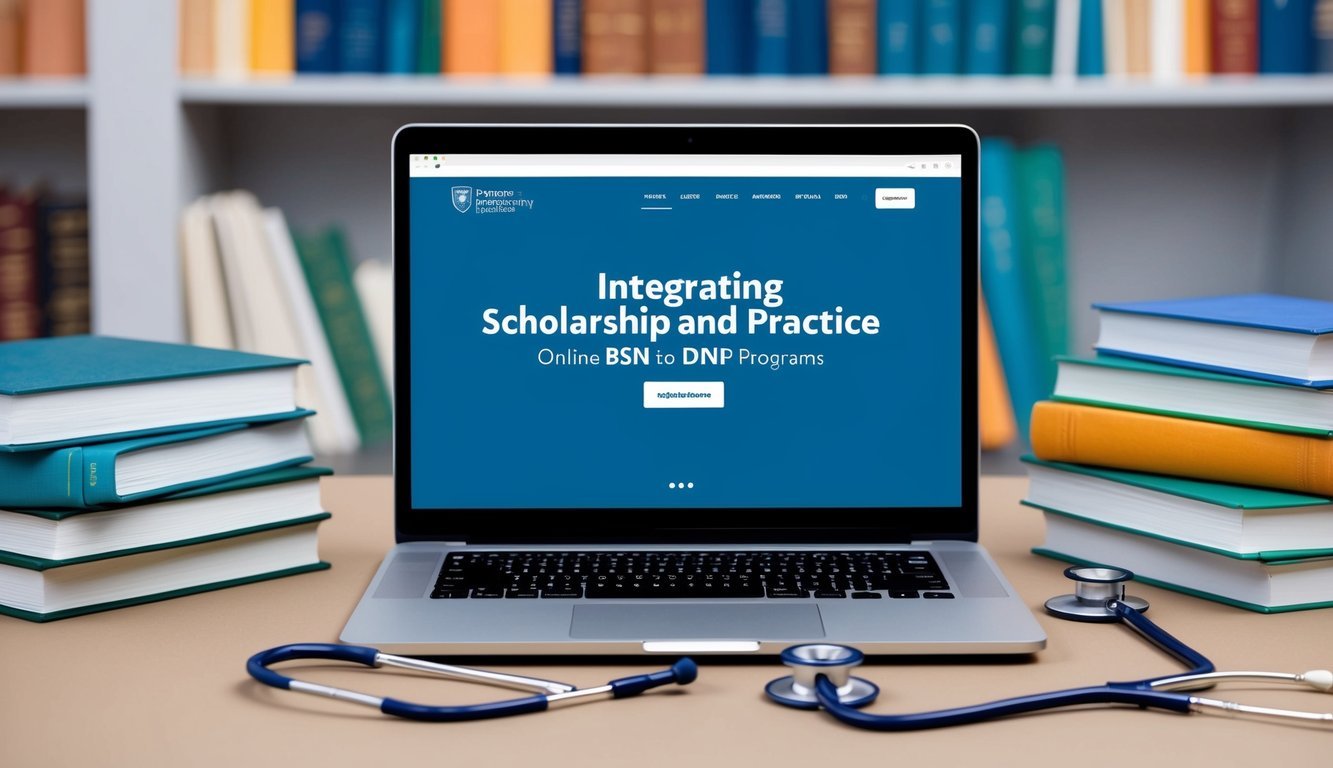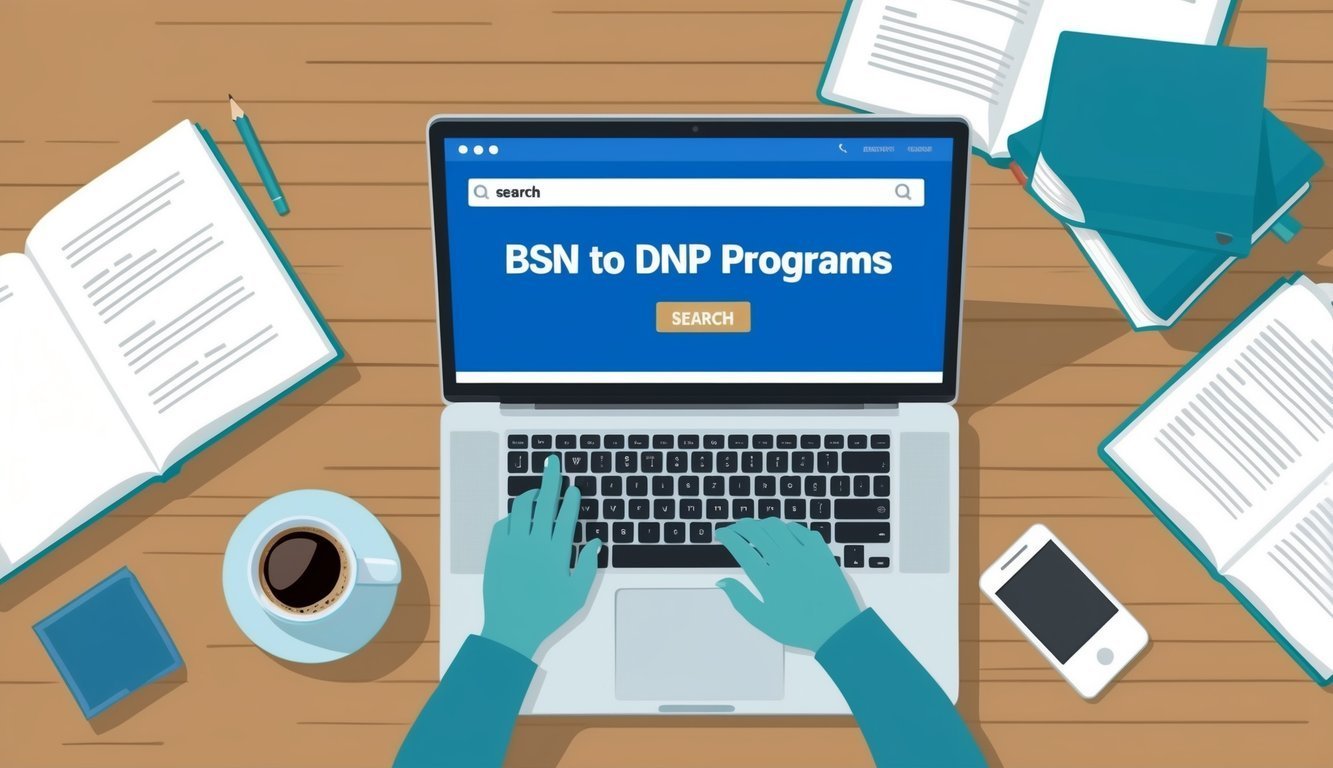As a registered nurse with a Bachelor of Science in Nursing, you may be considering the next step in your career. Online BSN to DNP programs provide a pathway for you to elevate your nursing practice and become an Advanced Practice Registered Nurse (APRN). These programs not only offer flexibility but also allow you to gain the advanced skills necessary to excel in various nursing roles.
Pursuing a Doctor of Nursing Practice (DNP) equips you with the expertise to lead in healthcare settings, influence policy, and improve patient outcomes.
Online options make it easier for you to balance work and education, enabling you to tailor your learning experience to fit your lifestyle.
If you are passionate about nursing education or wish to specialize further, exploring these programs could be your key to a fulfilling career advancement.
Many reputable institutions are offering comprehensive curricula designed to prepare you for the complexities of modern nursing.
Researching different programs will help you find one that aligns with your career goals and personal circumstances.
For an in-depth look at the best online BSN to DNP programs available, consider visiting resources like NursingProcess.org or Nurse.org.
Exploring BSN to DNP Programs
When considering an online BSN to DNP program, understanding the structure and requirements, as well as the accreditation processes, is crucial for your success.
This knowledge allows you to make an informed decision about which program aligns best with your professional goals.
Program Structure and Requirements
BSN to DNP programs typically involve a blend of coursework and clinical training.
The total program length often ranges from 2.5 to 4 years, depending on whether you choose full-time or part-time enrollment.
Here’s a breakdown of common requirements:
| Requirement | Details |
|---|---|
| Credits Required | 65-75 credits, including core and specialization courses |
| Clinical Hours | Usually 1000 to 1200 hours of practice |
| Scholarly Project | A significant project demonstrating your advanced practice capabilities |
Most programs are designed to be flexible, allowing you to complete courses online while fulfilling clinical hours in your community.
This integration of theory and practice helps prepare you for roles in leadership, education, or specialized care.
Accreditation and Quality Assurance
Accreditation is vital when selecting a BSN to DNP program, as it ensures the quality of education you will receive.
Programs accredited by the Commission on Collegiate Nursing Education (CCNE) or similar bodies meet high educational standards.
To verify a program’s accreditation status:
- Check the Program’s Website: Most accredited programs will display their accreditation status prominently.
- Visit the CCNE Website: Utilize resources available to confirm if a program is listed.
Choosing a CCNE-accredited program not only enhances the credibility of your DNP degree but may also affect financial aid eligibility and employment opportunities in the future.
A rigorous accreditation process contributes to a robust educational experience, equipping you for advanced clinical roles.
Admission Standards and Prerequisites
Getting into an online BSN to DNP program requires meeting specific academic and professional standards.
Understanding these criteria is crucial for a successful application.
Academic and Professional Qualifications
To apply, you typically need the following qualifications:
- BSN Degree: An accredited Bachelor of Science in Nursing is essential. Some programs may accept a non-nursing bachelor’s degree if a BSN is obtained later.
- Registered Nurse License: You must hold a valid RN license to practice in your state.
- Minimum GPA: Most programs require a GPA of at least 3.0 on a 4.0 scale.
- Clinical Experience: Programs often require 1-3 years of clinical nursing experience. This ensures you have practical knowledge before advancing.
Some programs may also require you to submit GRE scores.
Check individual schools for specific requirements.
The Application Process
The application process generally involves several key components:
- Personal Statement: A well-written personal statement highlighting your motivations and goals is crucial.
- Letters of Recommendation: You typically need 2-3 letters from professional references who can vouch for your capabilities.
- Transcripts: You must submit official transcripts from all post-secondary institutions attended.
- Resume: This should detail your work experience, particularly in nursing.
Many programs also require an interview as part of the selection process.
Be prepared to discuss your experiences and aspirations in nursing.
Specialization Options in DNP Programs

As you explore specialization options in DNP programs, several tracks cater to advanced practice roles.
These specializations enhance your practice and open pathways to impactful healthcare careers.
Primary Care and Specialty Care Tracks
In DNP programs, you can pursue various primary care and specialty care tracks.
These specializations prepare you for roles like Family Nurse Practitioner (FNP), which focuses on providing comprehensive care across all ages.
Other options include:
- Women’s Health Nurse Practitioner (WHNP): Specializes in female reproductive and gynecological health.
- Adult-Gerontology Acute Care Nurse Practitioner (AGACNP): Concentrates on managing acute conditions in adults and the elderly.
Additionally, you can choose to become a Nurse Midwife, focusing on prenatal, delivery, and postpartum care.
Each track equips you with the knowledge and skills to provide targeted patient care in your area of interest.
Emerging Fields and Interdisciplinary Roles
Emerging fields in nursing are expanding the scope of DNP specializations.
Areas like Nurse Anesthetist or Certified Registered Nurse Anesthetist (CRNA) have gained prominence.
CRNAs administer anesthesia and play a vital role in surgical teams.
Furthermore, programs are now integrating interdisciplinary approaches.
For instance, combining nursing practices with public health or healthcare administration prepares you for leadership roles.
This evolving landscape ensures that DNP graduates are well-equipped to address modern healthcare challenges while meeting diverse patient needs.
With these options, you can tailor your education to match your aspirations and the demands of the healthcare industry.
Career Advancement and Outcomes

Pursuing an online BSN to DNP program can significantly enhance your career prospects in nursing.
This educational advancement opens doors to leadership positions and positively influences health care delivery systems.
Leadership and Management Roles
With a Doctor of Nursing Practice (DNP) degree, you prepare for leadership and management roles within healthcare settings.
Positions such as Clinical Nurse Specialist, Nurse Manager, and Nursing Director become more accessible.
DNP holders possess skills in healthcare policy, evidence-based practice, and systems leadership, which are critical for directing nursing teams and improving patient outcomes.
In these roles, you can influence organizational changes, mentor fellow nurses, and drive initiatives that enhance clinical practices.
The DNP also equips you to teach at universities, contributing to the education of future nursing leaders.
Impact on Health Care Delivery
Your advanced education in a BSN to DNP program enables you to make a tangible impact on health care delivery.
As a DNP graduate, you are prepared to address complexities in patient care by implementing evidence-based practices.
You can drive innovations in care processes, improve patient safety, and promote quality improvement.
DNP-educated nurses are increasingly recognized for their roles in shaping healthcare policies and practices.
Your leadership in this field contributes to improved health outcomes across populations.
The ability to analyze data and apply findings ensures that you can effectively address public health challenges and expand access to care, including roles in nurse-midwifery and specialized nursing fields.
Integrating Scholarship and Practice

In online BSN to DNP programs, the integration of scholarship with practice is essential for advancing your nursing career.
This balance not only promotes professional growth but also contributes significantly to the nursing profession and patient health outcomes.
Developing Research Competence
As you progress through your BSN to DNP program, you’ll develop vital research skills.
These skills enable you to engage with evidence-based practice, which is crucial for improving patient care.
You will learn how to analyze current research, apply it to clinical settings, and develop new studies that can enhance health outcomes.
Ethics play a significant role in research.
Understanding ethical considerations ensures that your work upholds the integrity of the nursing profession.
Additionally, mastering research methodologies prepares you for the Doctoral Scholarly Project, which is a key component of your program.
Contributions to Nursing Science
Your journey through a DNP program positions you to make substantial contributions to nursing science.
By focusing on population health, you can identify critical gaps in care and propose solutions that inform practice.
You will also be prepared for board certification examinations, which further validates your expertise.
Engaging in scholarly projects will enhance your knowledge and provide insights that can influence health policy.
Through these initiatives, you contribute to a body of knowledge that benefits both the profession and the communities served.
Linking your scholarly work with practical applications ensures that nursing evolves with the changing landscape of healthcare.

